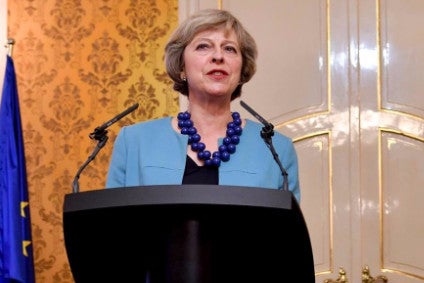
The UK’s Food and Drink Federation (FDF) warned food and drink manufacturers face a “grisly prospect” from a ‘no-deal Brexit’ as the government issues a series of papers for industry-specific sectors to prepare for what has also been termed a cliff-edge scenario.
An advisory concerning organic food production, labelling and trade was among the first of the so-called Technical Notices to be rolled out by the UK government today (23 August). They are intended to serve as a guide to businesses on the potential consequences should the UK fail to agree a deal with the European Union when it officially exits the trading bloc on 29 March – an event that will see Britain labelled a ‘third country’ by the EU.

Discover B2B Marketing That Performs
Combine business intelligence and editorial excellence to reach engaged professionals across 36 leading media platforms.
The worst case for organic food producers could be that logos on packaging would have to change and manufacturers would not be allowed to use the EU-certified organic logo.
UK companies would not be allowed to export organic produce to the bloc unless they were certified by a body recognised and approved by the EU to operate in the country. That would mean organic controls organisations based in the UK would have to apply to the European Commission for recognition, and they could only do so once Britain becomes a third country.
And most concerning to exporters is the process could take up to nine months, which the FDF says would effectively amount to a ban.
Ian Wright, the chief executive of the FDF, the industry lobby group representing the UK’s food and drink sector, said: “Specifically for food, today’s notice about organic food certification makes clear that UK organic exporters may face a ban on their exports to the EU for at least nine months after a no-deal exit, while new approvals for certification are sought. These issues apply far more widely than just to organic food – any UK food that currently displays EU marks or logos will be in the same boat.”

US Tariffs are shifting - will you react or anticipate?
Don’t let policy changes catch you off guard. Stay proactive with real-time data and expert analysis.
By GlobalDataThe government continued to emphasise today that a no-deal Brexit was “unlikely”, as it explained the reasoning behind the Technical Notices as its “duty as a responsible government to prepare for all eventualities…..until we can be certain of the outcome”.
By 29 March, the UK and the EU need to find a deal on issues such as the Irish border and citizens’ rights. If successful, then negotiations move on to the next stage within a so-called transition period to December 2020, when both parties need to agree on a trade deal.
Wright of the FDF commented: “The government’s laudable decision to publish these Technical Notices nevertheless confirms what a grisly prospect for UK food and drink a no-deal exit from the EU would be. There is no sign of further progress on negotiating frameworks with the devolved administrations. There is no substantive information on mitigating the effect of ‘no deal’ on the island of Ireland, where the implications would be most significant.”
Meanwhile, the government tried to assure the organic food industry today that some processes will remain the same even if the UK comes away with no deal.
The country would continue to maintain its “high standards” of food production and labelling, and local organic trade bodies would continue to certify products as organic for trade in the UK, but only the UK. Britain would also continue to accept organic products made in the EU, but at its own discretion.
Currently, there are six UK-based organic control bodies approved by the Department of Environment, Food & Rural Affairs (Defra) to license individual organic operators, along with two in Ireland.
Also, labels on food designated as organic must currently indicate the organic control body with which the processor or packer is registered, and they must include, at a minimum, a code number that denotes the approved control body. Products sold as organic must also carry the EU organic logo on the packaging.
The FDF also flagged concerns today over the UK’s ability to replicate the current trace-ability system. Under the existing environment, importers of organic food must register all consignments via TRACES – the EU Trade Control and Expert System that tracks the entire trade and certification process for animals, food, feed and plants.
CEO Wright added: “Moreover, the UK food industry will doubt that the Government could replace TRACES …..with a new, comprehensive, functional UK alternative IT system in time for the end of March.”
He continued: “The piecemeal release of these notices indicates that many are not yet ready and agreed for publication. That hardly inspires confidence. As the consequences of a no-deal exit from the EU become ever clearer it is vital that, to protect the interests of shoppers and consumers, the Government must deliver a deal with the EU.”





